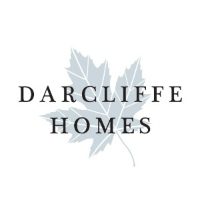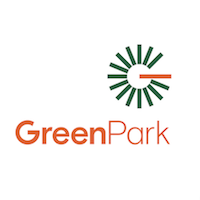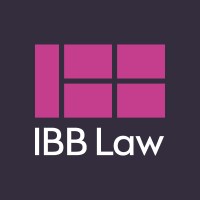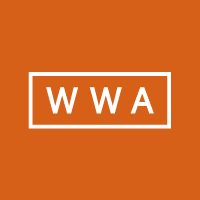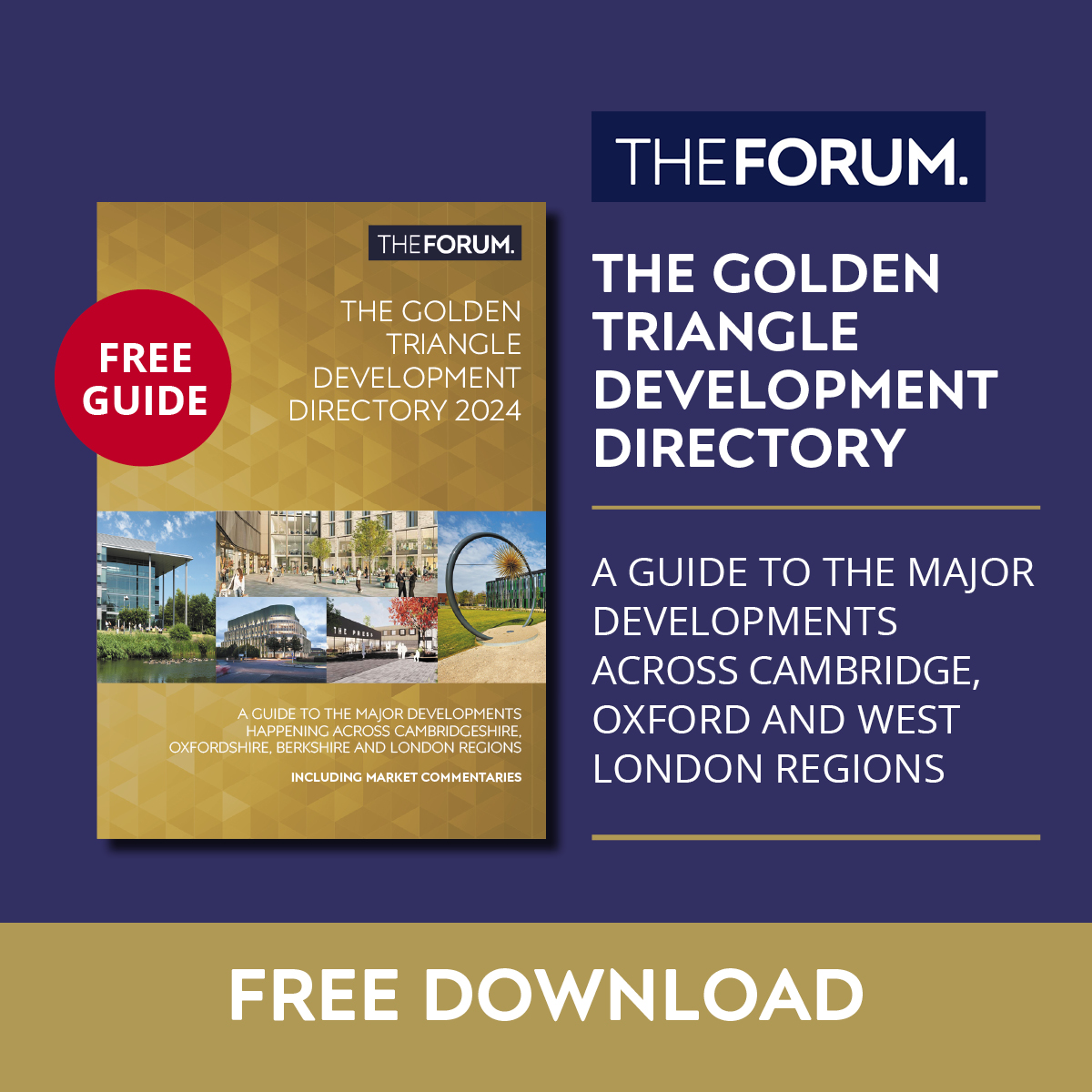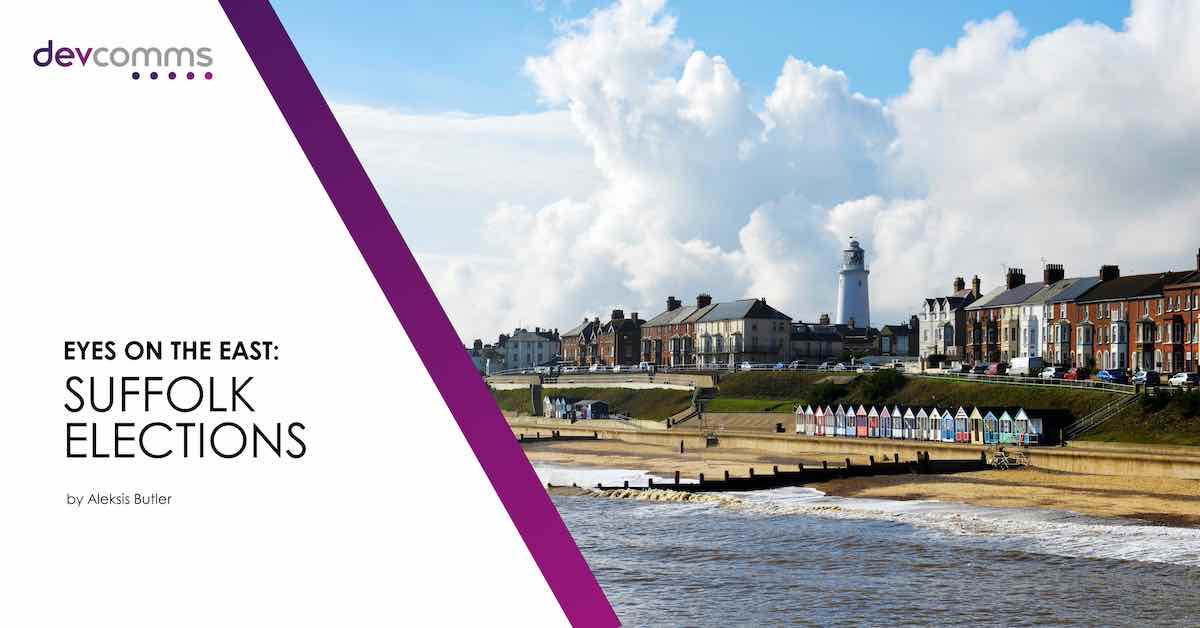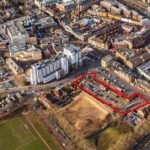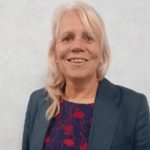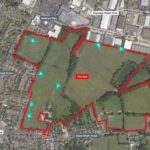Following last week’s portrayal of the new constituency of Ely and East Cambridgeshire by DevComms, account executive Aleksis Butler continues setting the political scene at locations around the Eastern region as the General Election draws closer, by weighing up the competing forces in Suffolk where boundary changes have created a new cross-county constituency.
Nestled in the heart of East Anglia lies Suffolk, a county which displays a rich tapestry of history, culture, and a vibrant political landscape. From the quaint villages dotting its rural expanse to the bustling market towns, Suffolk is not only a picturesque county but also a hub of political activity.
Despite its idyllic charm, Suffolk grapples with a myriad of challenges that echo through its political corridors. Issues such as affordable housing, rural isolation and the preservation of heritage and natural landscapes pose intricate policy dilemmas for elected officials. Moreover, the looming spectre of Brexit and its implications for agriculture, tourism and trade cast questions over the county’s trajectory.
Suffolk, like many other counties across the United Kingdom, plays a role in the outcome of the next General Election, with four predicted swing seats. In a landscape reshaped by the decisions of the Boundary Commission, a new political battleground has emerged in the form of the Waveney Valley constituency.
The redefined constituency encompasses a range of communities, from the north Suffolk surroundings of Bungay, Halesworth, Eye and Stowupland, to parts of South Norfolk including Diss and Harleston. It’s a region with a unique blend of rural charm and urban vibrancy, presenting a diverse set of challenges and opportunities for prospective MPs.
At the forefront of this political theatre are the Green Party, with their gaze fixed firmly on the Waveney Valley. The Green Party were successful in winning half of the East Suffolk Council wards in the seat in the 2023 local elections. The Greens are rallying support, banking on the region’s receptiveness to their environmental and social justice agenda. Co-leader Adrian Ramsay, a native of East Anglia, sees the constituency as pivotal in advancing the ‘Green surge,’ emphasising issues like the housing crisis and sustainable development.
However, the Green Party’s ambitions face staunch opposition, notably from the Conservatives, who are putting forward candidates like senior Suffolk County Councillor Richard Rout. With concerns ranging from infrastructure to public services, the Conservatives are vying to retain their foothold in a historically Conservative stronghold.
Yet, amidst the political manoeuvring, the people of Waveney Valley are grappling with the implications of this newfound cross-border identity. For some, it’s an opportunity to address pressing local issues such as pollution and affordable housing under the Labour banner. Others harbour reservations about losing their traditional identity and autonomy.
The blending of Norfolk and Suffolk districts into a combined single constituency has sparked debates about representation and governance. Will a cross-border MP adequately serve the diverse needs of both counties? How will shared resources and services be managed in this new political landscape?
Beyond the national spotlight, local elections serve as an indicator of grassroots sentiment and community engagement in Suffolk.
With the approaching local elections slated for May 2, 2024, Suffolk’s electorate braces for an opportunity to shape local governance but also steer Ipswich’s developmental trajectory. Attention shifts to the Ipswich Borough Council elections, where 16 borough councillors will be elected, with a third of the seats up for contention.
The postponement of the Police and Crime Commissioner (PCC) election by a year, attributed to the Covid-19 pandemic, amplifies the significance of this impending election cycle as an important juncture for community empowerment. The first-past-the-post system will be employed, with results expected to be announced on May 3, 2024 in Bury St Edmunds.
However, the electoral canvas extends beyond policing, encompassing the borough council elections in Ipswich, where the composition of the council hangs in the balance. Presently, Labour maintains a firm grip, controlling 32 of the 48 seats, amidst a backdrop of fluctuating political currents. While the Conservatives have showcased strength in previous elections, recent setbacks have seen them cede ground to Labour.
Labour will look to defend key positions, including senior cabinet members like Cllrs Alasdair Ross and Carole Jones, alongside the council’s leader and deputy leader, Cllr Neil MacDonald and Cllr Bryony Rudkin, respectively, who are all up for election. Meanwhile, the Conservatives are looking to secure their footing, especially with the fate of their party leader Cllr Ian Fisher’s seat hanging in the balance. The Conservative recent struggles, juxtaposed with national polling favouring Labour, sets the stage for a potentially transformative election.
Beyond the political dynamics, the future of Ipswich is also at stake. Concerns about the town centre’s vitality loom large. Local business owners and residents alike lament the decline of the retail landscape and the need for regeneration initiatives. Empty units and a lack of foot traffic underscore the urgency of revitalisation efforts.
Local Ipswich shopkeepers have emphasised the need for the council to engage landlords in reducing rents, attract more independent businesses and address issues like parking costs and cleanliness. Conservatives and Liberal Democrats advocate for immediate action, proposing measures such as expanding the indoor market and creating a cultural hub to invigorate the town centre.
Labour, on the other hand, highlights ongoing projects aimed at enhancing the town’s appeal, including urban beautification initiatives and digital marketing campaigns. However, there’s a consensus among all parties that concerted efforts are required to breathe new life into Ipswich.
In the imminent elections, Ipswich Borough Council assumes a key role in steering the town’s evolution, charting a trajectory that aligns with the aspirations of its residents. As the electorate prepares to cast their ballots, the Ipswich Borough Council elections emerge as a watershed moment in the town’s narrative, heralding an era of transformation and renewal.
In Suffolk, politics is not merely a spectator sport but an integral part of community life. Whether at the ballot box during general elections or in town hall meetings during local elections, residents actively participate in shaping the county’s future. As the electorate prepare to make their voices heard, the path forward for Suffolk emerges as one of transformation and renewal.
© Eastern Echo (powered by ukpropertyforums.com).
Sign up to receive our weekly free journal, The Forum here.












